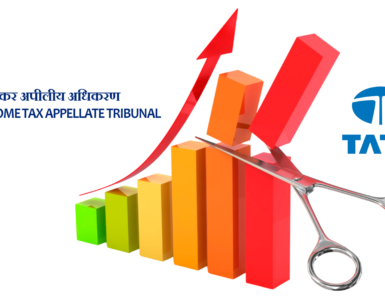Parts of ICDS are struck down and held ultra vires by Delhi High Court
This writ Petition was filed to seeks a declaration on the constitutional invalidity of section 145(2) of Income Tax Act, 1961. Through power conferred by this section Central Government notified ten ‘Income Computation and Disclosure Standards’ (“ICDS‟), which to be followed by all Assessee (excluding Individual or HUF who is not required to get his accounts audited as per ITL) following the mercantile system of accounting, for the purposes of computation of income chargeable to income tax under the head “Profits and gains of business or profession” or “income from other sources”.
The major premise on which the impugned ICDS is based is that the income computed for the purposes of income tax under the above two heads need not be (as is often not) the income as reflected in the books of accounts maintained by such Assessee. Although the computation of such taxable income would normally be based on the books of accounts of the Assessee, and dependant on the method of accounting followed by the Assessee subject to the adjustments for allowances and deductions under the Act. Assessing Officer (AO) can reject the books of accounts maintained by the Assessee if he is not satisfied about their correctness or completeness and can resort to best judgment assessment.
Petitioner’s counsel submitted that the impugned notification notifying ICDS is contrary to the settled law since its implementation would nullify the judgments of the Supreme Court and the High Courts. Reference was made to the various judgments which would now stand virtually inapplicable on account of the ICDS. It was clarified by the CBDT itself that in the case of conflict between the provisions of the ICDS and the Act, the provisions of the Act shall prevail. Consequently, with the ICDS being made mandatory it was no longer open to an Assessee to compute taxable income in terms of the Act as explained by the judgments of the Supreme Court and High Courts.
Question of law:
- Whether the amendments to Section 145 are an instance of delegation by the Parliament of essential legislative powers to the Central Government?
- Are the ICDS an instance of excessive delegation of legislative powers? Whether the impugned ICDS are contrary to the settled law as explained in various judicial precedents and are, therefore, liable to be struck down?
- Whether the impugned amendments to Section 145 of the Act and the consequential ICDS and Circular violate Articles 14, 19 (1) (g), 141, 144 and 265 of the Constitution?
High Court Judgment:
- Section 145 (2), as amended, has to be read down to restrict power of the Central Government to notify ICDS that do not seek to override binding judicial precedents or provisions of the Act. The power to enact a validation law is an essential legislative power that can be exercised, in the context of the Act, only by the Parliament and not by the executive. If Section 145 (2) of the Act as amended is not so read down it would be ultra vires the Act and Article 141 read with Article 144 and 265 of the Constitution.
- ICDS is not meant to overrule the provisions of the Act, the Rules thereunder and the judicial precedents applicable to the provisions of the Act as they stand.
- ICDS I which does away with the concept of ‘prudence’ is contrary to the Act and binding judicial precedents and is therefore unsustainable in law.
- ICDS II pertaining to valuation of inventories and eliminates the distinction between a continuing partnership business after dissolution from one which is discontinued upon dissolution is contrary to the decision of the Supreme Court in Shakti Trading Co. It fails to acknowledge that the valuation of inventory at market value upon settlement of accounts of the outgoing partner is distinct from valuation of the inventory in the books of the business which is continuing. ICDS II is held to be ultra vires the Act and struck down as such.
- The treatment to retention money under Paragraph 10 (a) in ICDS-III will have to be determined on a case to case basis by applying settled principles of accrual of income. By deploying ICDS-III in a manner that seeks to bring to tax the retention money, the receipt of which is uncertain/conditional, at the earliest possible stage, irrespective of the facts, the Respondents would be acting contrary to the settled position in law as explained in the decisions referred to in para 68 and to that extent para 10 (a) of ICDS III would be rendered ultra vires.
- Para 12 of ICDS III read with para 5 of ICDS IX, dealing with borrowing costs, makes it clear that no incidental income can be reduced from borrowing cost. This is contrary to the decision of the Supreme Court in CIT v. Bokaro Steel Limited and is therefore struck down.
- Para 5 of ICDS-IV requires an Assessee to recognize income from export incentive in the year of making of the claim if there is ‘reasonable certainty’ of its ultimate collection. This is contrary to the decision of the Supreme Court in Excel Industries (supra), and is, therefore, ultra vires the Act and struck down as such.
- As far as para 6 of ICDS IV is concerned, the proportionate completion method as well as the contract completion method have been recognized as valid method of accounting under the mercantile system of accounting by the Supreme Court in CIT v. Bilhari Investment Pvt. Ltd. and by this Court in various other cases. Therefore, to the extent that para 6 of ICDS-IV permits only one of the methods, i.e., proportionate completion method, it is contrary to the above decisions, held to be ultra vires the Act and struck down as such.
- Para 8 (1) of ICDS IV is not been shown to be contrary to any judicial precedent. There is also no challenge to Section 36(1) (vii) of the Act. Accordingly, para 8 (1) of ICDS-IV is held to be not ultra vires the Act. Its validity is upheld.
- ICDS-VI which states that marked to market loss/gain in case of foreign currency derivatives held for trading or speculation purposes are not to be allowed, is not in consonance with the ratio laid down by the Supreme Court in Sutlej Cotton Mills Limited v. CIT (supra), insofar as it relates to marked to market loss arising out of forward exchange contracts held for trading or speculation purposes. It is, therefore, held to be ultra vires the Act and struck down as such.
- ICDS VII which provides that recognition of government grants cannot be postponed beyond the date of accrual receipt, is in conflict with the accrual system of accounting. To that extent it is held to be ultra vires the Act and struck down as such.
- ICDS VIII pertains to valuation of securities. For those entities not governed by the RBI to whom Part A of ICDS VIII is applicable, the accounting prescribed by the AS has to be followed which is different from the ICDS. In effect, such entities will be required to maintain separate records for income tax purposes for every year since the closing value of the securities would be valued separately for income tax purposes and for accounting purposes. To this extent Part A of ICDS VIII is held to be ultra vires the Act and is struck down as such.
- To the extent the specific ICDS as noted hereinbefore have been struck down as ultra vires the Act, the impugned notification Nos. 87 and 88 dated 29th September 2016 and Circular No. 10 of 2017 issued by the CBDT are also held to be ultra vires the Act and struck down as such.
(Judgment Order dt. 08/11/2017)




